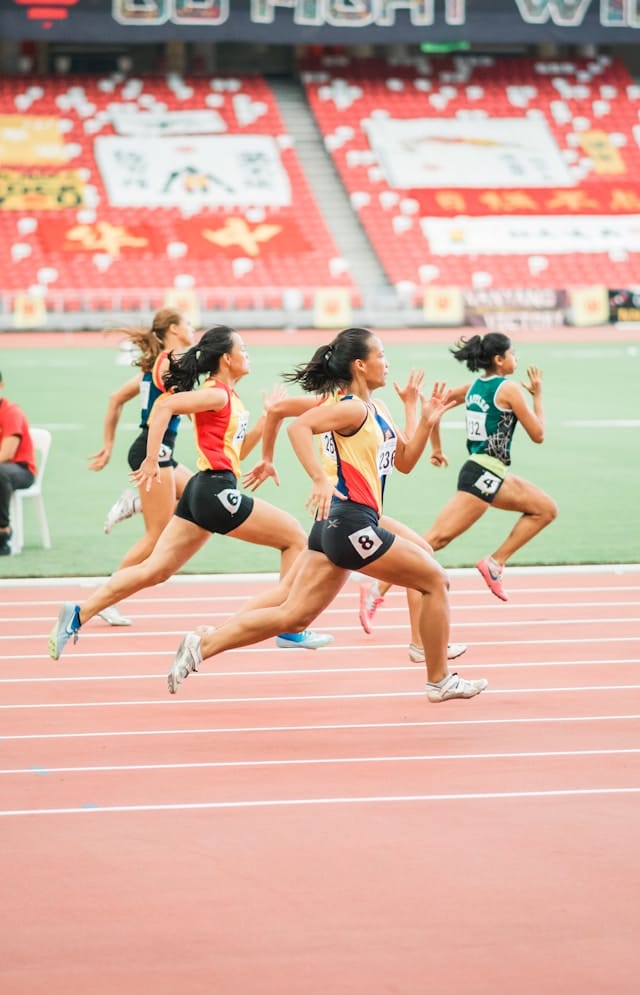For athletes, maintaining optimal health and physical performance is the key to success. One often overlooked aspect of this equation is the athlete’s dietary iron intake. Iron is a crucial mineral that plays essential roles in the body, especially in blood production and oxygen transportation. Any deficiency can significantly impact the health and performance of an athlete. This article will delve into the importance of iron in one’s diet, how a deficiency can affect an athlete’s performance, and recommend dietary practices and foods rich in iron to prevent iron-deficiency anemia.
The Vital Role of Iron in an Athlete’s Body
Iron is a vital mineral that performs several critical functions in the athlete’s body. It is a crucial component of hemoglobin, a protein in blood cells that carries oxygen from the lungs to the rest of the body. Moreover, iron also plays a significant role in energy production, muscle function, and immune system health, which are all crucial for athletic performance.
Sujet a lire : How Does Guided Meditation Affect Postoperative Pain Management?
However, athletes, particularly female athletes, are at an increased risk of iron deficiency due to factors such as menstrual bleeding, inadequate dietary intake, decreased absorption, and increased loss of iron through sweat and urine. Iron deficiency can lead to diminished performance, increased fatigue, and a higher susceptibility to illness and injury. Therefore, maintaining a healthy iron status is of utmost importance for athletes.
The Consequences of Iron Deficiency in Athletes
A deficiency in iron can have detrimental effects on an athlete’s performance and overall health. Iron deficiency can lead to iron-deficiency anemia, a condition characterized by low levels of hemoglobin in the blood. This can result in fatigue, weakness, decreased athletic performance, and compromised immune function, among other symptoms.
A voir aussi : What Techniques Can Optimize Deep Sleep Phases for Individuals with Sleep Apnea?
Furthermore, iron deficiency can also lead to decreased ferritin levels in the body. Ferritin is a protein that stores iron in the body, and its levels can provide a good indication of the body’s iron stores. Low ferritin levels can negatively impact an athlete’s performance even before anemia develops, as it can cause fatigue and diminished endurance.
Preventing Iron Deficiency through Dietary Practices
Preventing iron deficiency in athletes is not a difficult task if the right dietary practices are followed. It primarily involves ensuring adequate iron intake and enhancing iron absorption.
The first step is to consume foods rich in iron. Meat, especially red meat, is a great source of ‘heme’ iron – a type of iron that is more easily absorbed by the body. Other rich sources of iron include poultry, fish, legumes, fortified cereals, and dark green leafy vegetables like spinach.
In addition to increasing iron intake, athletes should also adopt dietary practices that enhance iron absorption. This involves including foods rich in Vitamin C in meals, as Vitamin C has been shown to improve the absorption of iron. Also, athletes should avoid consuming tea and coffee with meals, as the tannins in these beverages can inhibit iron absorption.
The Role of Supplements in Managing Iron Intake
While a well-balanced diet is typically sufficient to meet an athlete’s iron requirements, there may be situations where a supplement is necessary. This might be the case for vegetarian or vegan athletes, athletes with heavy menstrual bleeding, or athletes who have a diagnosed iron deficiency.
However, iron supplements should not be taken without medical supervision. Excessive iron intake can lead to iron toxicity, which can damage the liver and other organs. Also, iron supplements can interact with certain medications and affect their efficacy. Therefore, athletes considering iron supplements should always consult a healthcare professional to ensure safe and effective usage.
In conclusion, iron is a vital nutrient for athletes and plays a crucial role in maintaining optimal health and performance. By following good dietary practices, athletes can help ensure they maintain adequate iron levels and prevent the detrimental effects of iron deficiency.
Balancing Iron Intake According to Body Weight and Gender
Addressing the iron needs for athletes requires an understanding of the unique demands of their bodies. Body weight and gender, among other factors, play a significant role in determining the appropriate iron intake. This is crucial as the amount of iron needed by an athlete’s body varies and is influenced by these factors.
For instance, female athletes tend to have a higher risk of iron deficiency than their male counterparts. This is largely due to menstrual blood loss, which leads to a higher iron demand in the body. In addition, the lower body weight of female athletes compared to males also contributes to this heightened risk.
When it comes to iron supplementation, athletes should aim for a balance. Consuming too much iron can result in iron overload, which can cause damage to body organs. On the other hand, not consuming enough iron can lead to iron-deficiency anemia – a condition that can severely affect an athlete’s performance.
As a benchmark, female athletes need approximately 18 milligrams of iron per day, whereas male athletes require about 8 milligrams. However, it is crucial for athletes to remember that these numbers are averages and individual iron requirements can vary widely. Therefore, athletes should seek advice from a healthcare professional to understand their specific iron needs better.
Importance of Regular Screening for Iron Levels
Regular screening for iron levels is a crucial practice that athletes should adhere to. It provides an essential check on the effectiveness of an athlete’s dietary plan in maintaining optimal iron status. Regular checks can highlight any iron deficiency early on, allowing athletes to adjust their diet or begin iron supplementation before the deficiency becomes severe.
Screenings typically involve blood tests to measure the levels of ferritin, hemoglobin, and hematocrit in the body. Ferritin levels provide a snapshot of the body’s stored iron supply, while hemoglobin and hematocrit levels reflect the iron available for immediate use in red blood cells.
If an athlete’s iron levels fall below the normal range, healthcare professionals will typically recommend changes in diet or iron supplementation. In some cases, further testing may be required to determine the cause of the low iron levels. For instance, gastrointestinal issues can lead to decreased iron absorption, resulting in iron deficiency.
Incorporating iron-rich foods into the diet, improving iron absorption, and regular screening for iron levels can effectively help athletes maintain optimal iron status. However, athletes should always consult with healthcare professionals to tailor these general recommendations to their specific needs.
Conclusion
In athletics, the importance of maintaining optimal iron levels cannot be overstressed. Iron plays a key role in carrying oxygen to the muscles, producing energy, and fostering a robust immune system, all of which are crucial to peak athletic performance. Iron deficiency, on the other hand, can lead to fatigue, decreased performance, and a higher susceptibility to illnesses.
As such, athletes need to pay special attention to their iron intake. Consuming iron-rich foods, maximizing iron absorption, and taking iron supplements (if necessary under professional supervision) are vital steps towards achieving and maintaining iron sufficiency. Regular screening for iron levels is also important to detect and address any deficiencies early on.
In conclusion, maintaining iron sufficiency requires a multifaceted approach that takes into account individual body weight, gender, and dietary habits. By taking proactive steps to ensure optimal iron intake and absorption, athletes can safeguard their health and performance, and excel in their sporting endeavors.






